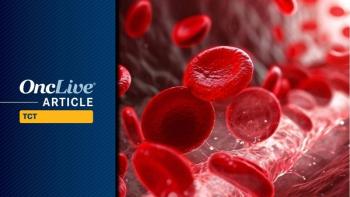
Dr. Uberti on Transplant in Myelodysplastic Syndrome
Joseph Uberti, MD, PhD, division head, BMT, Leukemia & Lymphoma, professor of medicine, Department of Oncology, Barbara Ann Karmanos Cancer Institute, Wayne State University, discusses the use of transplant in myelodysplastic syndrome (MDS).
Joseph Uberti, MD, PhD, division head, BMT, Leukemia & Lymphoma, professor of medicine, Department of Oncology, Barbara Ann Karmanos Cancer Institute, Wayne State University, discusses the use of transplant in myelodysplastic syndrome (MDS).
Transplant remains the only curative option for patients with MDS, but it is often underutilized by referring physicians, notes Uberti. This can be attributed to misconceptions about age requirements and the availability of donors. Older patients are often eligible for transplant and new donor match programs allow physicians to find donors for almost every patient who is eligible for transplant.
Older MDS patients tend to have comorbidities, but Uberti notes that physicians can still get these patients through a transplant. Data have shown that following transplant, 50% to 60% of patients are alive at 6 years without evidence of disease. There is a very high cure rate compared to the alternative, explains Uberti. Now, related donor transplants, unrelated donor transplants, and haploidentical transplants can be used with very similar outcomes, adds Uberti.



































